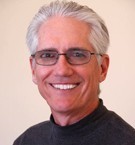Seminary students are among the busiest people I know. Church + Family + School + Work makes for a challenging time of wise prioritizing.
A Talbot professor back in the early 1980s gave his busy seminarians some pointed advice. He instructed us not to spend a lot of our time in local church ministry. “This is your training time,” he asserted, “and seminary is where you need to focus for this season of your life.”
At the time it sounded like good advice. Now I’m not so sure.
The Bible has been given to the church for the edification of the church. In seminary, we take the Bible out of the church to be studied in an academic setting wholly removed from local church life and ministry. I am becoming increasingly convinced that something is wrong—even spiritually dangerous—with this scenario.
A pair of stories, about four Talbot graduates, will help you see why.
I’ll call the first two “Student #1” and “Student #2.” The two men make an interesting study, because they followed identical academic tracks. Both earned masters degrees at Talbot. Both served as my Teaching Assistants, as well. After seminary, Student #1 and Student #2 each entered the same Ph.D. program I went through — with the same wonderful advisor — in the History of Christianity at UCLA. In fact, they were in the program at the same time, they became good friends, and they graduated together.
But they ended up in very different places spiritually. Student #1 is now a Bible professor at Biola. He is on-fire for the Lord and doing a great job in the classroom. I last encountered Student #2 at a scholarly convention several years ago. He asked me, Joe, how can you still believe the things you do after going through your Ph.D. program at UCLA?
Story number two is similar, again involving a couple of Talbot graduates. One (“Student #3”) has been a friend for several decades. The other (“Student #4”) is another former Teaching Assistant of mine. Both went through identical doctoral programs, at the same time, and they, too, became good friends during the process. Students #3 & #4 studied with the same mentor, a wonderful New Testament scholar and churchman named Andrew Clarke, who teaches at Aberdeen University in Scotland.
Again, the outcomes could hardly be more dissimilar. Student #3 trains church leaders for Europe, teaching New Testament in Bible schools and seminaries in France, Switzerland, Belgium, and Ukraine. He and his wife have faithfully served Christ on the mission field for more than twenty years.
I have not seen Student #4 for several years. I heard, however, that after he finished his Ph.D., Student #4 became a successful proprietor of a company that makes craft beer — real good beer, too, according the my son-in-law!
So, one day I sent a beer-loving friend from church to the brewery. I told him that the owner, Student #4, is a brother in the Lord who was my former Teaching Assistant.
At the facility, my friend mentioned to the brewmeister that he was a Christian. In response, “Student #4” ripped him up one side and down the other, leveraging his graduate training in Christian origins to make my buddy feel like a fool in front of several members of his family.
Last summer, my wife and I were at a festival in Mammoth Lakes, CA, which featured, among other things, beer samples from Student #4’s company. The motto under that name of the brewery said it all: Beer, Hope, and Love. Somewhere along Student #4 had apparently lost his Faith.
Two pairs of Talbot graduates with identical academic pilgrimages. Four PhDs in New Testament. Two are walking with Jesus. Two are not.
A good counselor would surely have some ideas about why these students — who walked identical academic paths together — came out of their studies so spiritually different from one another. An astute sociologist would surely have some thoughts to add, as well.
I am neither a psychologist nor a sociologist, but I see one glaring difference between these men, which bothered me for years, and which goes a long way to explain where they ended up.
Students #1 & #3 — who stayed the course and are faithfully serving Jesus today — were deeply involved relationally and ministerially in the local church throughout their time at Talbot and during their doctoral programs in New Testament, at UCLA and in Scotland.
Students #2 & #4 were not. Indeed, while they were my Teaching Assistants at Talbot, I constantly challenged each of them to find a church family and to begin using their gifts to minister to others. For various reasons, neither ever did.
In the final analysis, a theological education is not for the students in a classroom. It is for the people in the pew. They are the ones who are ultimately to benefit from what goes on at a place like Talbot School of Theology.
We call ourselves the “Talbot family,” and I, for one, am grateful for the collegiality and friendships I have found at Talbot School of Theology. But Talbot is not our spiritual family. The local church is intended by God to serve that function in our lives.
For it is not the community of fellow-students or Bible scholars at Talbot, or UCLA, or Aberdeen, who will keep me close to Jesus during my studies. It is the community of the church, where I share life with Christians who live in the real world — software engineers, stay-at-home moms, contractors, bus drivers, school teachers — people whose faith often goes much deeper than my own, but who know next-to-nothing about that little iota in homoiousios.
Do you want to stay close to Jesus while in seminary or a Ph.D. program in biblical studies? Then stay immersed in local church life and ministry.
 Biola University
Biola University


.jpg)
